On behalf of MIT Blueprint Labs, we are pleased to extend a note of gratitude for your support this year. In 2023, we fostered continuous collaboration between rigorous research, policy design, and implementation. We investigated pressing issues in education, health care, and the workforce and look forward to growing our research and policy initiatives in 2024.
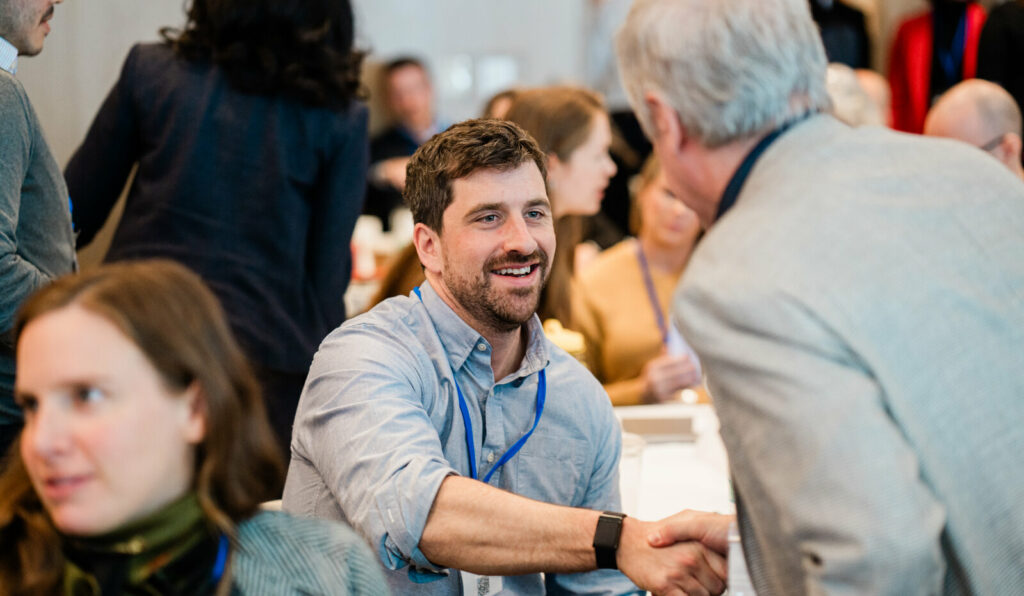
This year, Blueprint Labs released two reviews of existing lottery-based research: one on preschool education and one on charter schools. The first review tackles the question: How does preschool impact children’s outcomes? Blueprint researchers find that preschool greatly improves children’s short-run academic outcomes, but these effects fade throughout elementary and middle school. However, positive effects re-emerge in the long term: preschool boosts college enrollment and high school graduation. The review also highlights topics that warrant further study, including access, alternative measures of children’s success, and variation across contexts. Read more in our policy brief.
After decades of charter school expansion and research, Blueprint researchers have released a review that synthesizes evidence from lottery-based studies of charter schools. Many charter schools increase students’ academic achievement. However, limited lottery-based research exists on charter schools’ impacts on long-term, behavioral, and health outcomes. Read more in our policy brief.
In recent years, artificial intelligence (AI) in medicine has focused on inventing and refining algorithms as a diagnostic tool. In a new paper, Blueprint Co-Director Nikhil Agarwal, Affiliate Tobias Salz, and co-authors conducted an experiment to examine how to effectively deploy AI to improve diagnostic quality in radiology. Alone, AI predictions were more accurate than nearly two-thirds of radiologists. Yet, when expert radiologists had access to AI, their diagnostic accuracy did not improve on average. To fully exploit the promises of AI, researchers and policymakers need to better understand how humans use and misuse it. To learn more, check out Blueprint’s check out Blueprint’s policy brief and the Wall Street Journal’s coverage.
Launched this year by Blueprint Co-Director David Autor and Affiliates Daron Acemoglu and Simon Johnson, the Shaping the Future of Work Initiative applies economic research to identify innovative ways to make labor market outcomes more equitable. The Initiative conducts research to answer policy-relevant questions about labor market opportunities for American workers—especially those without four-year degrees. Learn more.
In a landmark study, Blueprint Co-Director David Autor and co-authors find that the post-COVID-19 labor market yielded rapid wage growth for low-paid workers, reducing the returns to a college degree and counteracting nearly 40% of increased wage inequality since the 1980s. Gains were largest for young, non-college workers who changed employers—moving from lower-paying to higher-paying and potentially more productive jobs.

Building on decades of research on charter schools, Blueprint launched a Charter School Research Collaborative this fall to make charter research more actionable, rigorous, and efficient. To further connect research and policy, Blueprint brought researchers, practitioners, and policymakers from the early education space together to define a preschool research agenda and build the foundation for valuable partnerships.
Finally, Blueprint’s education equity fellowship continues to grow. Last May, the third cohort concluded the year with a visit to Los Angeles to learn about the city’s enrollment practices. The fourth cohort, with fellows from school districts, nonprofits, state agencies, and charter organizations, met in Cambridge in November to kick off a year of learning together. You can read more about our policy outreach below.
Thank you for your continued engagement with Blueprint Labs. As we continue to grow, we are more motivated than ever to fulfill our mission of uncovering the consequences of policy decisions and improving society.
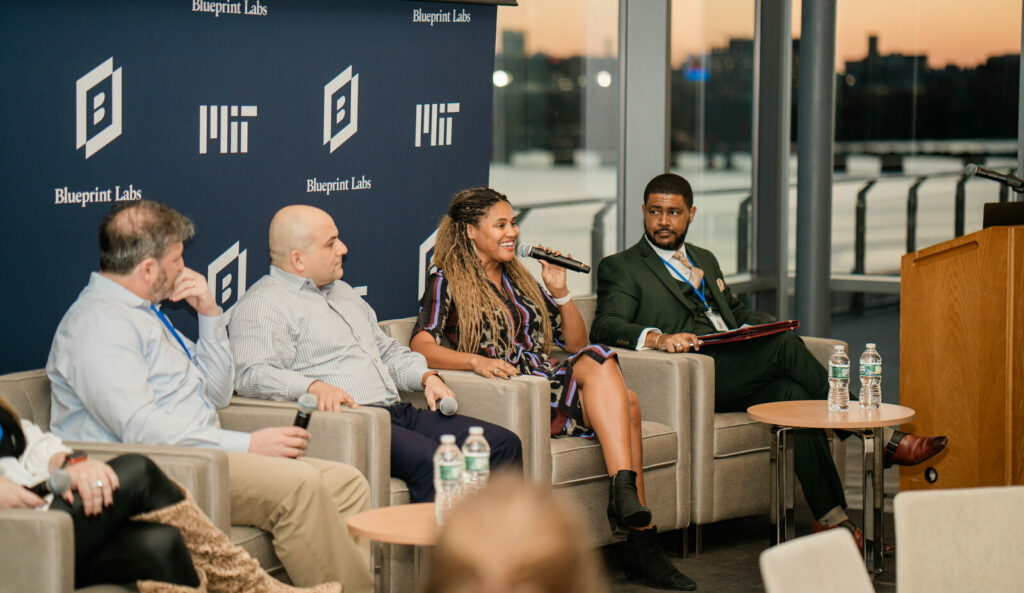
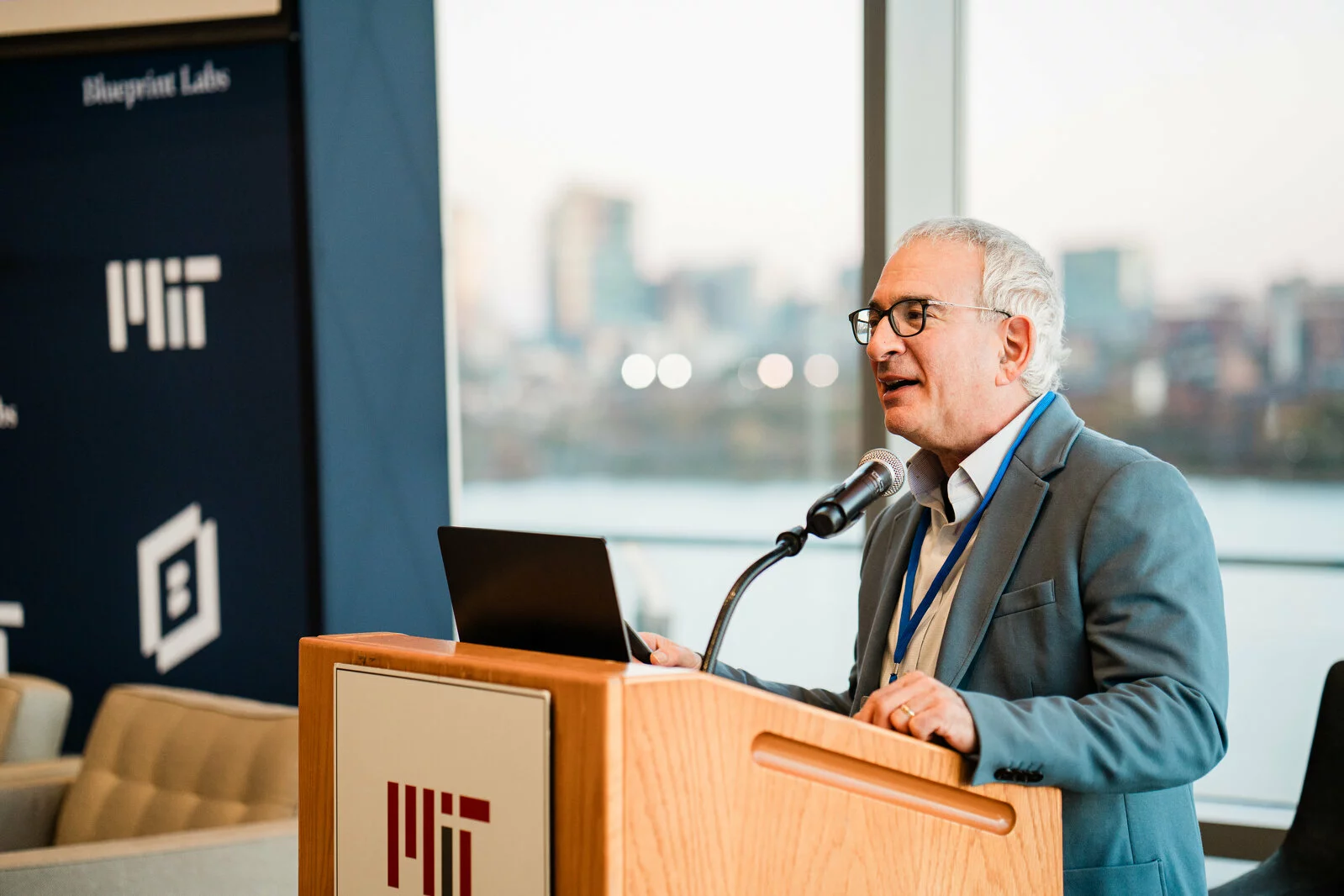
Josh Angrist speaks at the Charter School Research Collaborative Kickoff in Cambridge in November 2023.
The National Academy of Sciences (NAS) elected 120 members for its 2023 cohort, including Blueprint Director Josh Angrist. Learn more about the NAS and Josh’s career in this MIT News article.
Blueprint and MIT Shaping the Future of Work Co-Director David Autor received the 2023 NOMIS Distinguished Scientist and Scholar Award for outstanding contributions to science and human progress through pioneering work that explores unconventional ideas. Autor will launch a new project to study how AI can complement human expertise and its likely impacts on the demand for labor and the value of middle-skill work. Autor accepted the award in Zurich, Switzerland this October.
Blueprint Affiliate Daron Acemoglu received the 2023 A.SK Social Science Award from the WZB Berlin Social Science Center. The award recognizes his influential research on inequality, prosperity, and technology, cutting across both economics and political science disciplines. Acemoglu accepted the award in Berlin, Germany this November.
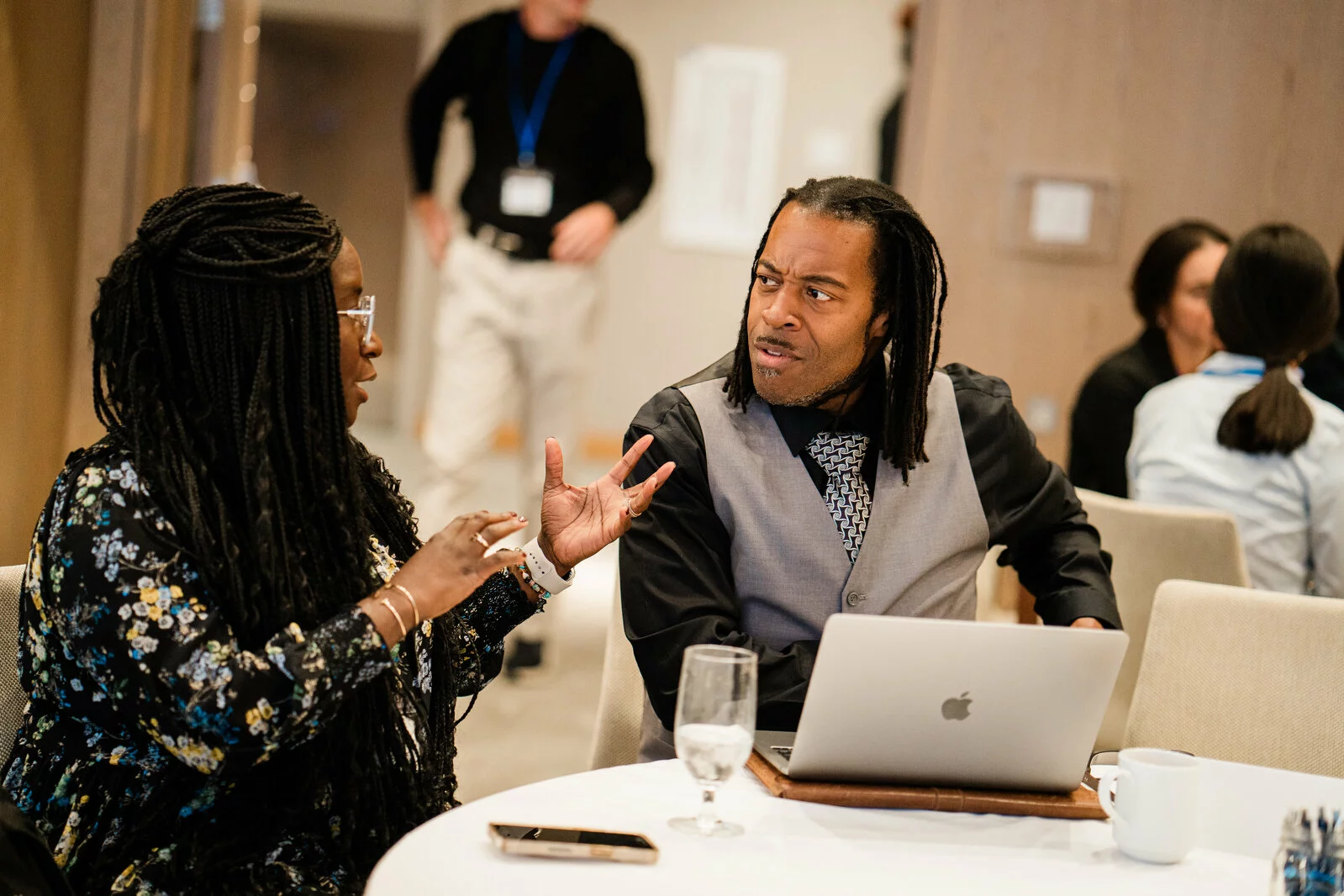
School Access and Quality Fellowship City Learning Visit – May 4 & 5, 2023
Blueprint’s third cohort of SAQ fellows concluded the year with a visit to Los Angeles to learn about the city’s enrollment practices.
Shaping the Future of Work & MIT Sloan EMBA program “Fireside Chat” with former MA governor Charlie Baker – April 14, 2023
Blueprint Affiliate Simon Johnson chaired a discussion with former Massachusetts Governor Charlie Baker about his book Results: Getting Beyond Politics to Get Important Work Done. Baker also met with a group of MIT researchers to discuss how leaders in large organizations and public service can overcome political divides and bureaucratic obstacles to effectively solve problems.
New Directions in Market Design Conference – May 11 & 12, 2023
Director Parag Pathak co-organized the New Directions in Market Design conference at MIT in May. At the conference, experts gathered to discuss market design research on a wide variety of topics, including health care, education, AI, housing, financial markets, renewable energy, and more.
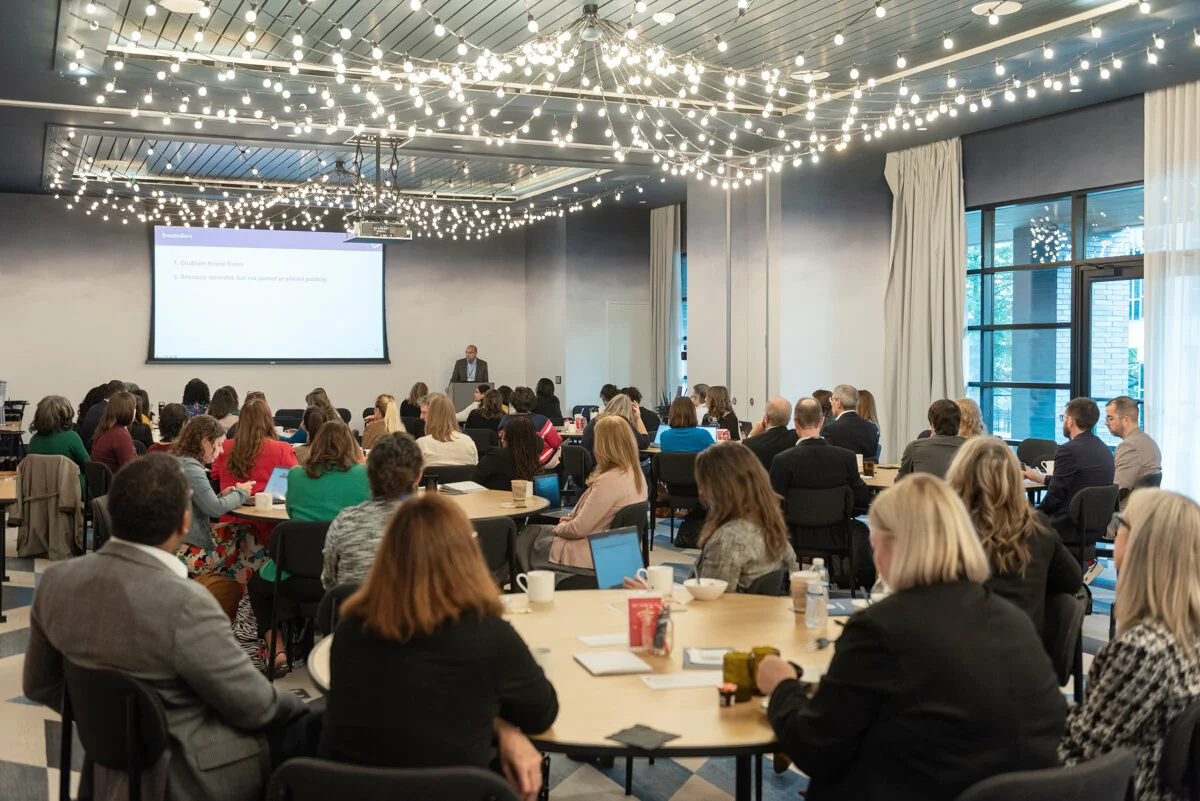
School Access and Quality Fellowship Kickoff – November 1 & 2, 2023
Blueprint launched the fourth cohort of its education equity fellowship. Our 20 fellows join from school districts, nonprofits, state agencies, and charter organizations nationwide.
Charter School Research Collaborative Kickoff – November 2 & 3, 2023
This event brought leading charter school researchers, policymakers, practitioners, and funders to MIT. Through panels, presentations, and discussions, participants raised pressing, unanswered charter research questions. Several sessions offered new ideas to ensure that research includes diverse voices to generate actionable evidence.
Preschool Research Convening – November 13 & 14, 2023
Leaders in preschool policy, practice, and research met in Nashville to build connections and discuss critical early childhood education topics. Participants discussed essential subjects in the preschool space, built the foundations for valuable partnerships, and formed an actionable and inclusive research agenda. State policy leaders, local practitioners, researchers, and national policy leaders shared their perspectives. Stay connected to this work.
The Charter School Research Collaborative will launch its first competitive funding process in early 2024. We will prioritize projects that address policy-relevant questions, propose a rigorous research design, and are conducted in partnership with practitioners or policymakers. Sign up here to receive the Collaborative’s updates.
The Shaping the Future of Work Initiative will officially launch with a series of panel discussions on Monday, January 22, 2024. Learn more and register here.
Subscribe for Updates